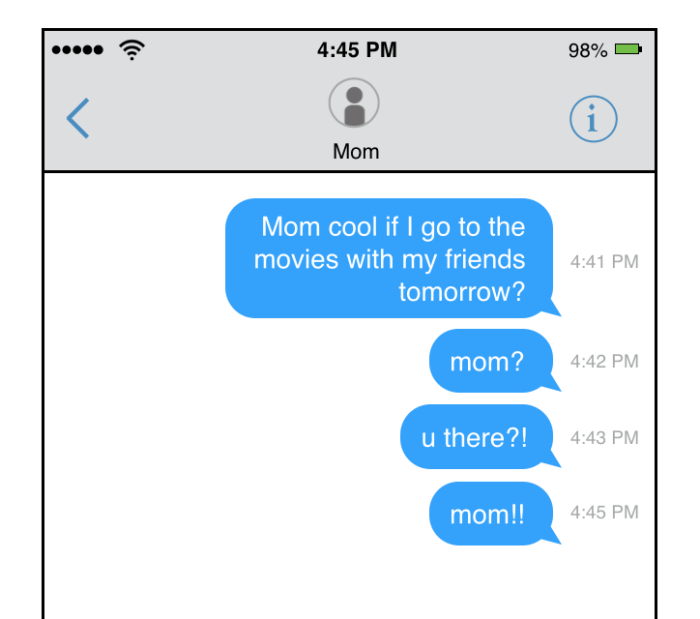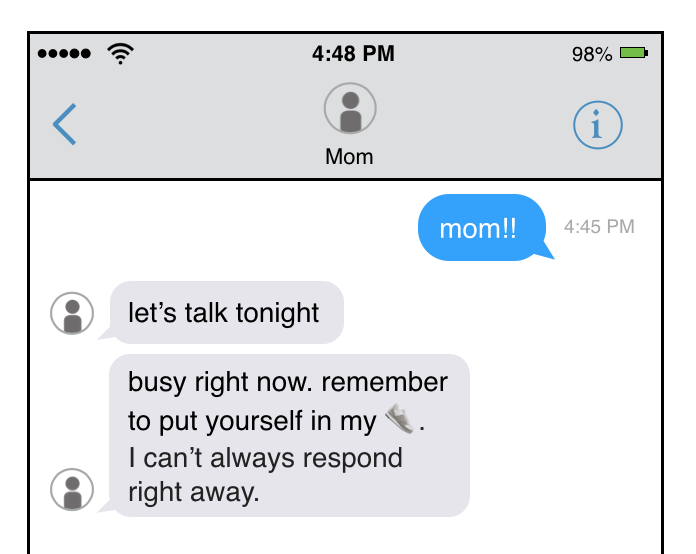Why kids think you should respond to their texts RIGHT NOW, and how to change that

The scenario above is common. Children, even teens, often expect immediate responses to their messages, regardless of what you’re doing. In a meeting with a client? Driving the car? Swimming laps? Doesn’t matter — you should be replying to their messages.
The frustration is compounded when children choose not to respond to their parents’ text. As Lisa Sugarman writes on Grown & Flown,
“Yes, I’m talking about the flagrant double standard that kids have with texting etiquette as it applies to their parents. It seems like most kids have this twisted expectation that we’re supposed to respond to their texts instantaneously, while they’re under little or no obligation to respond to ours. Not ok.”
Why don’t they understand that parents aren’t holding their phones 24 hours a day, seven days a week, awaiting texts from their kids so they can respond in nanoseconds with lightning-fast thumb-typing skillz?
Some of this expectation comes from watching their peers and, um, that includes their parents.
On text, you’re a peer, too.
Some of this expectation comes from watching their peers and, um, that includes their parents. Children learn behaviors by watching the behavior of others, even before they get a phone or tablet of their own. So show them how it’s done by putting your phone down, and your texting on hold, when…
- talking to them in person or on the phone
- driving, walking, biking
- eating a meal together
- doing anything together IRL
But don’t just show it. Say it.
The Social Institute recommends that families start by talking about empathy. Talk about how helpful it is to imagine what the other person might be doing, feeling, or thinking at that moment. Perhaps you think, “That’s ridiculous! I can’t begin to imagine what they’re doing, much less thinking or feeling!” And you’re probably right. So, take your child through that thinking process with you. Practice putting the both of you in someone else’s shoes.
Then, the next time you get a message like the one above, reply with an empathy prompt. Here’s an example:

Talk instead of text.
A lot of parents tell The Social Institute that their kids text them when everyone is at home. Maybe mom is in the living room, teenage son is in his room, and he texts her a question. Don’t text back. Get up, go to his room, talk to him. Encourage talking to each other IRL, even when texting is an option.
